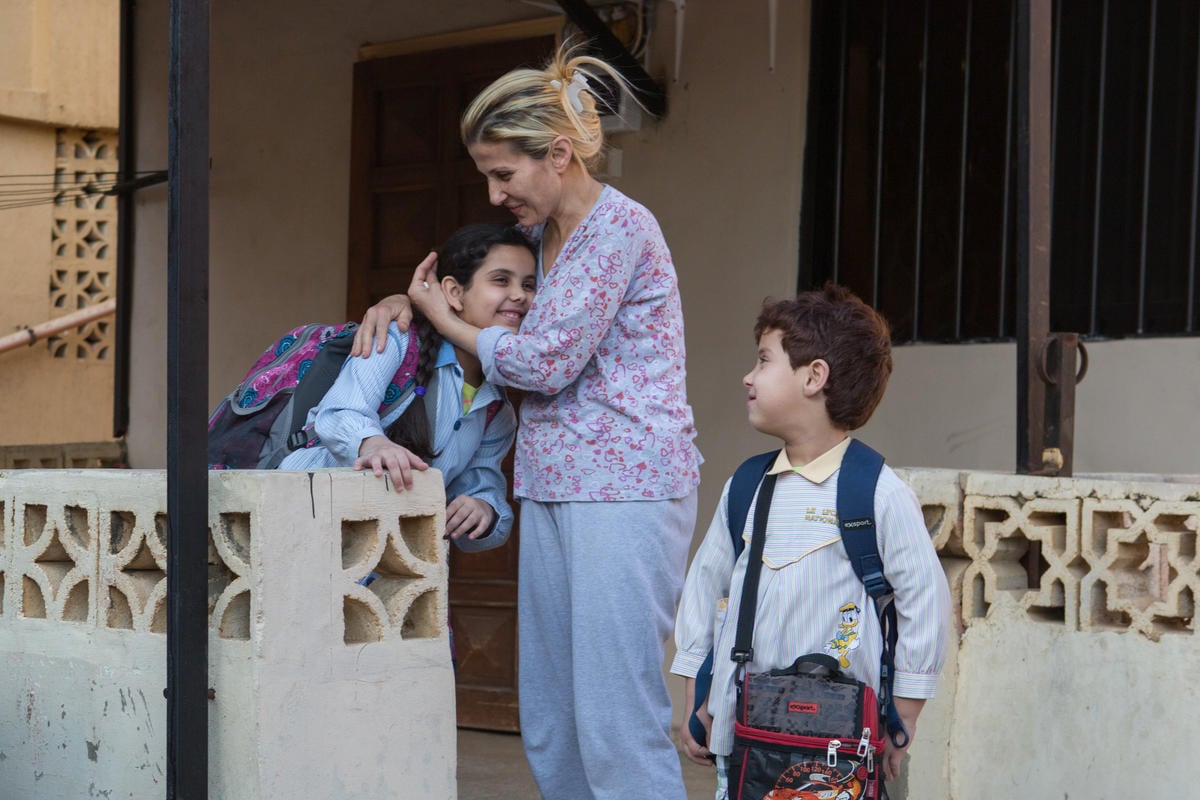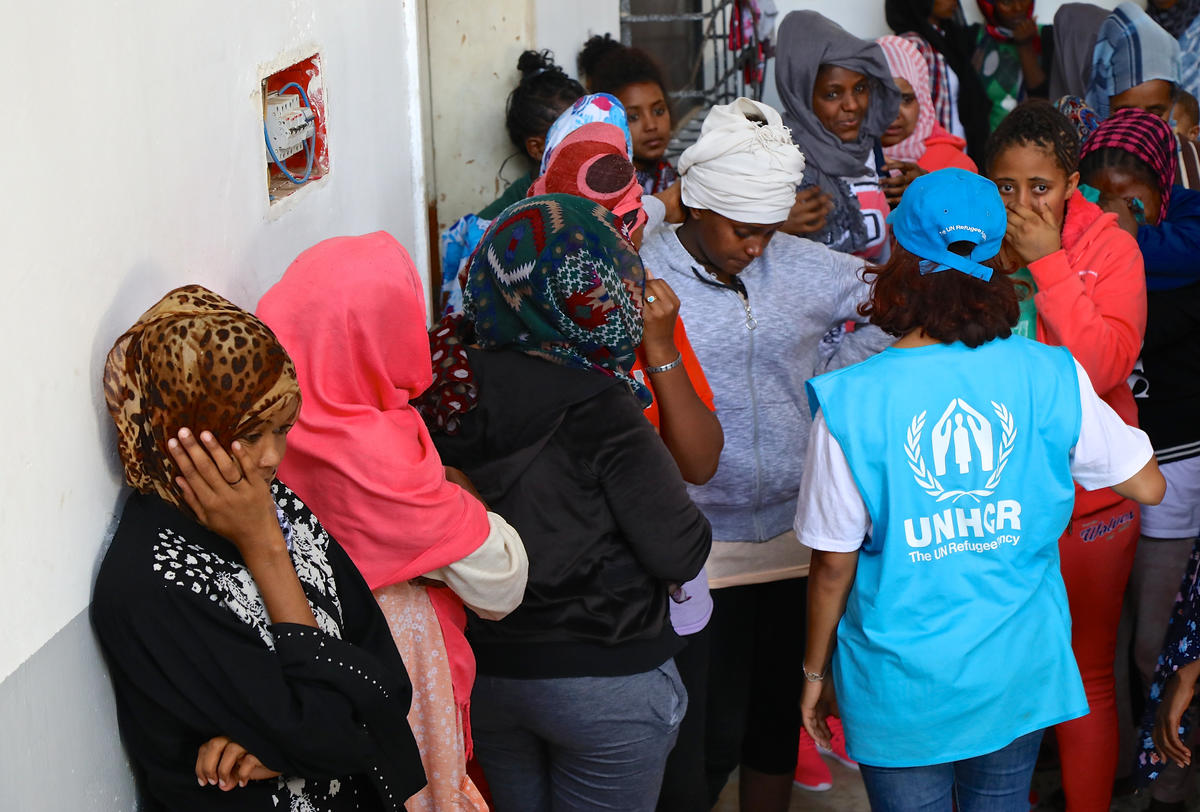UNHCR urges evacuation of people trying to leave Libya
UNHCR urges evacuation of people trying to leave Libya

GENEVA, February 28 (UNHCR) - As UNHCR emergency teams worked with the Tunisian and Egyptian authorities on Monday to help more than 110,000 people who have fled Libya, High Commissioner for Refugees António Guterres expressed concern for refugees and other foreigners who might be trapped in the beleaguered North African nation.
"There are no planes and boats to evacuate people originating from war-torn or very poor countries," Guterres said, urging governments to consider the needs of all vulnerable people and not just their own citizens. "Many of these people feel targeted and afraid, and have no resources," he added.
Libya has long been a transit and destination country for refugees. UNHCR has recognized 8,000 Palestinian, Iraqi, Sudanese, Ethiopian, Somali and Eritrean refugees. A further 3,000 were seeking asylum, while thousands more are believed to be in the country.
But over the past two weeks, Libya has been torn by escalating violence between government supporters and opposition forces, forcing tens of thousands of people - mainly foreigners working in Libya - to seek shelter in neighbouring Tunisia and Egypt.
"Africans seem to be particularly at risk as they are being associated with foreign mercenaries," said the High Commissioner. "We are very concerned they are unable to move or access safety."
Tribal leaders in eastern Libya told UNHCR at the weekend that sub-Saharan Africans were being treated with suspicion due to rumours about the government employing mercenaries from other parts of the continent. During the meeting UNHCR staff highlighted the fact that thousands of refugees from sub-Saharan Africa are in Libya, and are very vulnerable at this time. The tribal leaders promised to relay this information on to their communities.
UNHCR is working at the Tunisian and Egyptian borders to help the governments manage the dramatic influx. More than 110,000 people have crossed so far and thousands more are arriving by the hour.
Most of those fleeing are Egyptian and Tunisian nationals, though small numbers of Libyans and other nationalities are managing to escape. Several governments have sent aircraft and ships to evacuate their citizens.
But very few refugees have made it out. So far no refugees registered with UNHCR in Libya have crossed either the Egyptian or Tunisian borders. UNHCR is in touch with a number of refugees who are choosing to keep a low profile and stay at home; they say they are fearful of being targeted if they attempt to leave.
On Saturday, the Tunisian government said 40,000 people had crossed its borders since February 20. Of this number, approximately 18,000 are Tunisian, 15,000 Egyptian, 2,500 Libyan and 2,000 Chinese. A further 10,000 are believed to have crossed in the past two days.
Meanwhile in Egypt, the authorities told UNHCR that 55,000 people had crossed the border since February 19. This includes 46,000 Egyptians, 2,100 Libyans and 6,900 third country nationals, mainly from Asian countries.
The tribal leaders in eastern Libya also highlighted the need for humanitarian assistance, with a critical shortage of food throughout the eastern region, as well as shortages of some medical supplies.
On Saturday, UNHCR flew more than 100 tonnes of humanitarian aid to Jerba in Tunisia. The aid, enough for 10,000 people, will be transported to the Libyan border to support the thousands of people who are crossing. The Boeing 747 cargo plane was packed with 2,000 tents, 2,000 plastic sheets and thousands of blankets, sleeping mats, kitchen sets and jerry cans.
The tents will be used in a transit camp identified by the Tunisian government close to the border. This camp is being used for new arrivals awaiting travel arrangements onwards. Other aid items will be distributed by the Tunisian Red Crescent to new arrivals. In addition to the airlift, UNHCR is buying relief items such as blankets and mattresses locally in Egypt and Tunisia.
Meanwhile, UNHCR staff in the Libyan capital, Tripoli, are doing their best to help refugees who manage to reach or contact the agency's office there. UNHCR is also in the process of planning humanitarian assistance for Libya.
The International Organization for Migration (IOM) estimates that 1.5 million irregular migrant from Africa and Asia are working in Libya. Guterres said he welcomed the efforts under way by countries of origin to facilitate the repatriation of these stranded migrants with the support of IOM.
"UNHCR is appealing to all neighbouring governments in North Africa and Europe to maintain open land, air and sea borders for people forced to flee from Libya," the High Commissioner said. "All people leaving Libya should be granted access to territory without discrimination, irrespective of their background."
He reiterated his gratitude to Tunisia and Egypt for their open border policy and again appealed to the international community to support these two countries.








